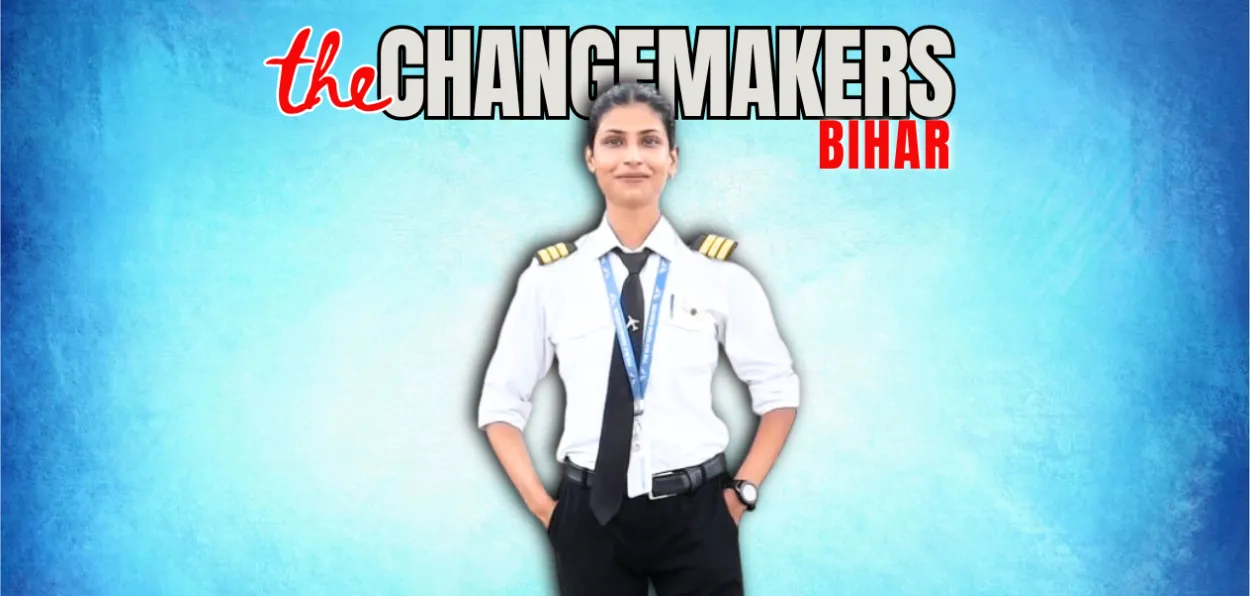
Naushad Akhtar/Patna
On her social media bio, Tayyaba Afroze calls herself "Pilot on Mode," "Born to Fly," and "Dream, Achieve, Fly." Yes. You guessed it right; Tayyaba is a pilot.
Tayyaba Afroze's story is not just about a woman becoming a pilot; she is a living symbol of struggle, perseverance, and the soaring flight of dreams.
Hailing from the small village of Jalalpur in the Saran district, Tayyaba is the first Muslim woman from Bihar to become a commercial pilot.
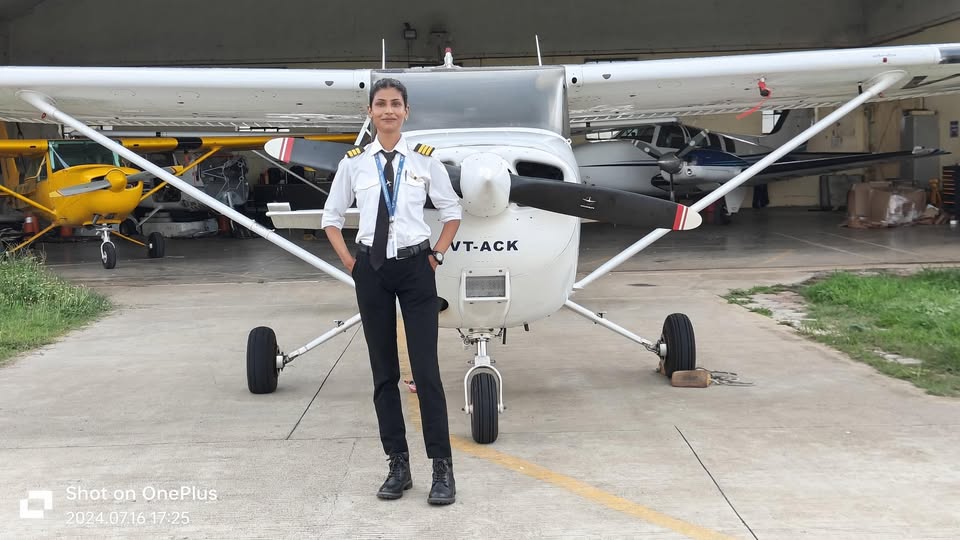 Tayyaba Afroze in front of her training aircraft at the Indore Flying Club
Tayyaba Afroze in front of her training aircraft at the Indore Flying Club
Her journey was not easy. Her father, Matiul Haque, ran a modest grocery shop, while her mother, Samsun Nisha, was a homemaker.
Yet, their daughter’s dream soon became a mission for the parents. Little Tayyaba had expressed her desire to fly planes — an ambition rarely entertained in rural India, especially for girls.
After completing her 12th grade, she told her parents clearly that she wanted to become a pilot. The family was surprised, but her father believed her. He trusted his daughter, who had an excellent academic performance and steely determination.
As aviation training is prohibitively expensive, Matiul Haque knew training his daughter was beyond his means.
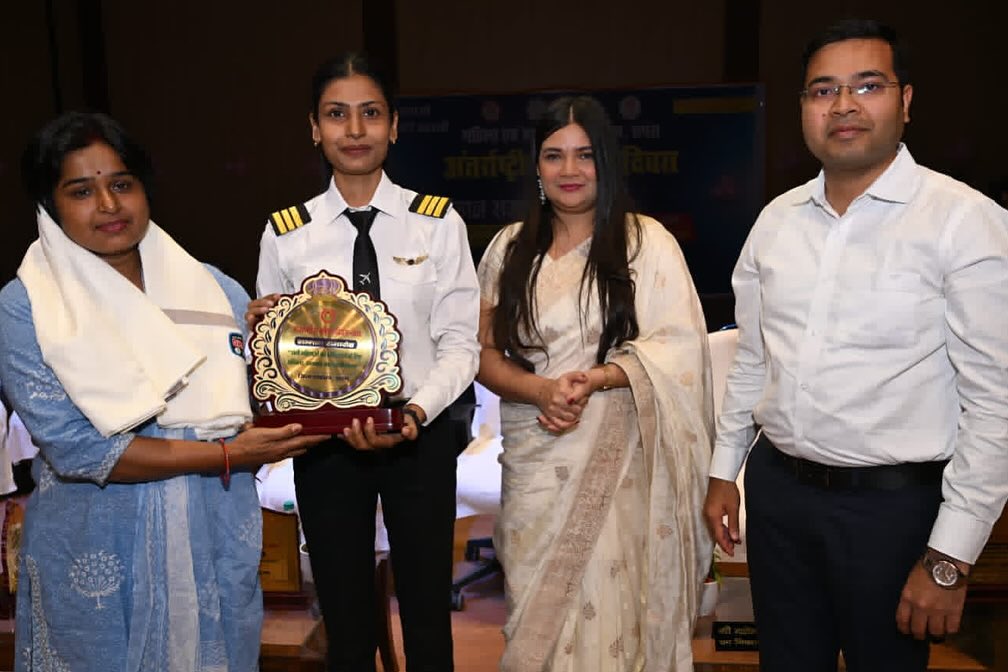 Tayyaba Afroze beinging felicitated at a function
Tayyaba Afroze beinging felicitated at a function
Her parents made a bold and painful decision: they sold their ancestral farmland to fund her admission to a government-run aviation training institute in Bhubaneswar, Odisha.
The road ahead was anything but smooth. Not long after starting her training, Tayyaba was diagnosed with gallstones and declared medically unfit to fly.
It was a devastating blow not only to Tayyaba but even to her parents; their collective dream was slipping away from their reach.
Yet, Tayyaba didn’t give up. She underwent surgery, recovered, and eventually rejoined the training program.
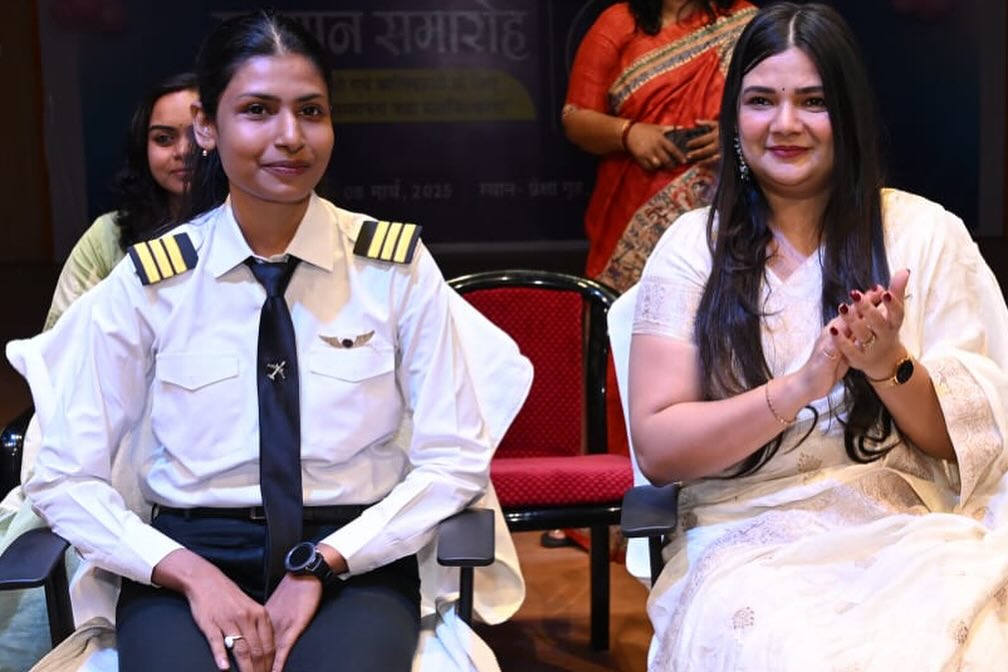 Tayyaba Afroze at a function after delivering motivational speech
Tayyaba Afroze at a function after delivering motivational speech
After logging nearly 80 hours of flying time, another tragedy struck. A fellow trainee pilot died in an accident, sending shockwaves through the institute.
Emotionally shaken, Tayyaba paused her training.
Once again, the dream seemed in jeopardy.
However, her family supported her. With her parents' support, a bank loan, and financial help from a retired Director General of Police (DGP), Tayyaba resumed her training — this time at Indore Flying Club, Indore, Madhya Pradesh.
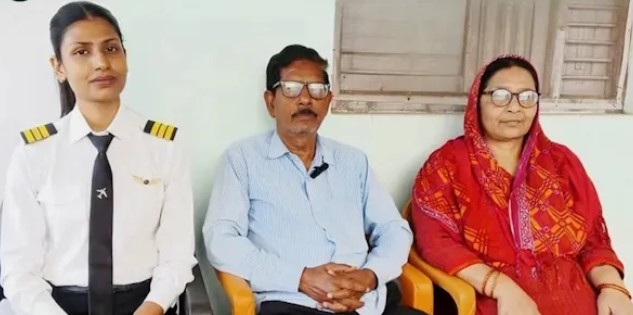 Tayyaba Afroze with her parents Samsun Nisha and Matiul Haque at their house
Tayyaba Afroze with her parents Samsun Nisha and Matiul Haque at their house
There, she completed the remaining 120 hours of flying and earned her DGCA (Directorate General of Civil Aviation) license — the mandatory certification to fly commercial aircraft in India.
Her training spanned nearly three years and included tough written exams, simulator drills, and real-time flying in difficult conditions.
“Flying solo for 100 hours was scary,” Tayyaba recalls, “but fear never got into my head.”
When she finally took to the skies as a licensed pilot, her story was in the headlines across India. While many celebrated her, others criticized her.
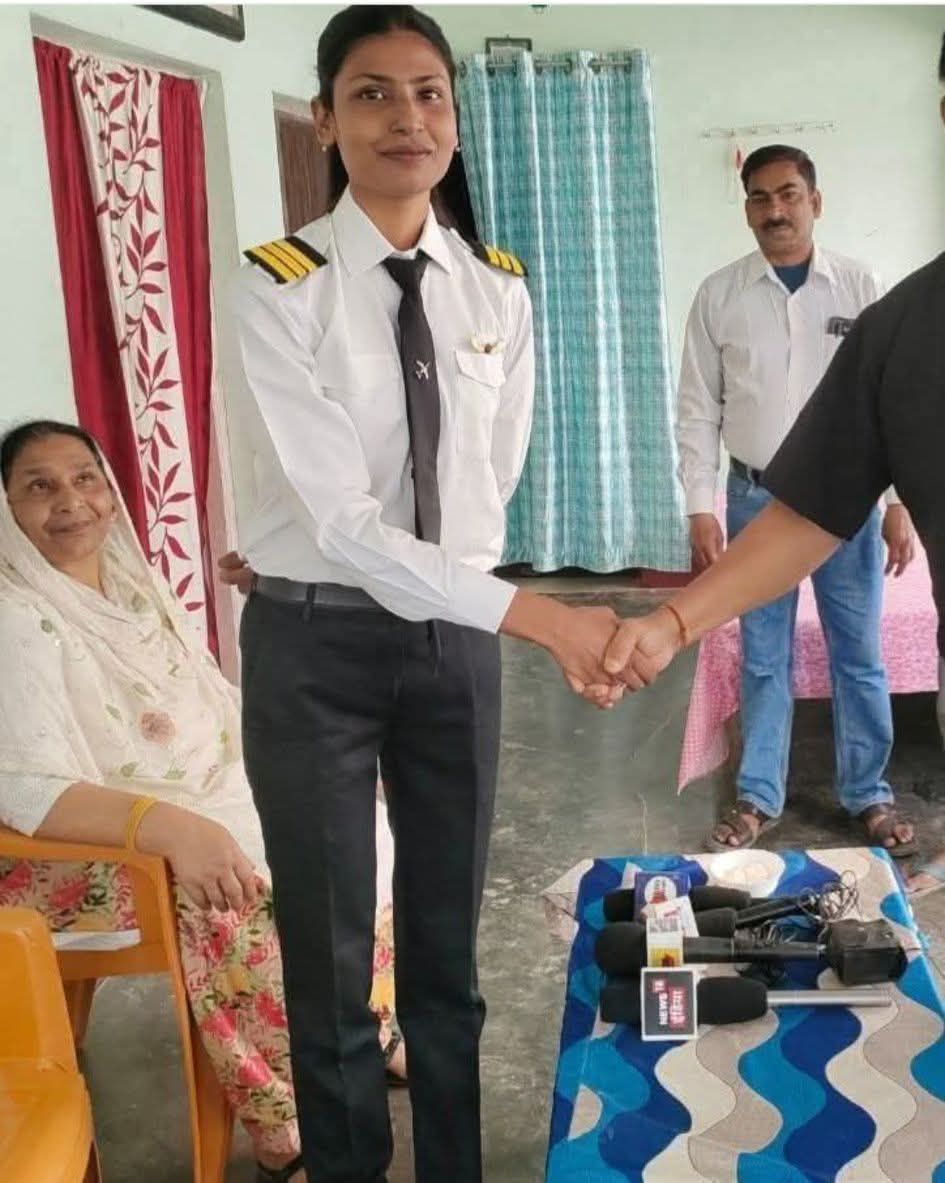 Tayyaba Afroze receiving visitors at home after becoming a commercial pilot
Tayyaba Afroze receiving visitors at home after becoming a commercial pilot
Hardline religious voices attacked her for not wearing a burqa and claimed that a Muslim woman in a pilot's uniform was "haram."
Tayyaba’s calm response silenced many: “There’s no dress code in the cockpit. The plane doesn’t care what you wear or where you come from.”
READ MORE: Shams Alam overcame paraplegia to become India's top para-athlete
Today, Tayyaba is a living embodiment of the adage: dreams are not defined by one's resources, background, or gender.
